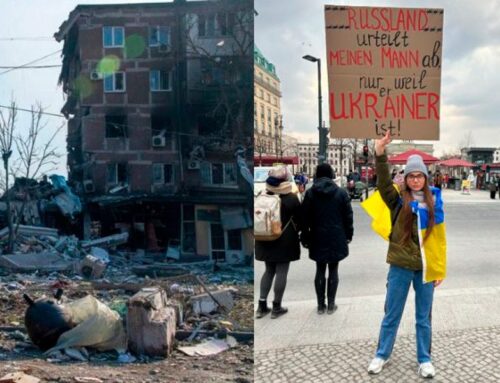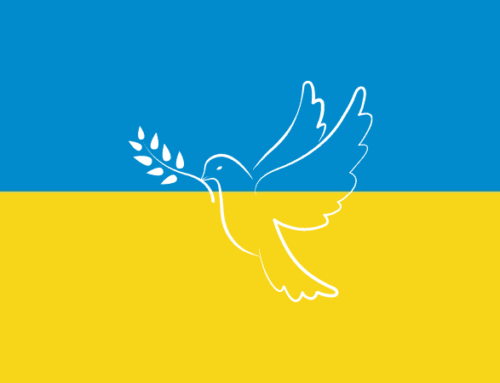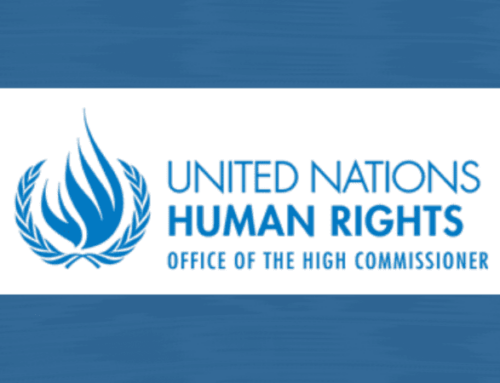On November 3, 2021, a hearing was held in the Shevchenkovsky District Court of Kiev in the case of Yuri Rossoshansky, who is charged with paragraph 4 of Part 2 of Art. 115 of the Criminal Code (premeditated murder committed with extreme cruelty). On December 29, 2017, it became known about the disappearance of a well-known human rights defender, lawyer Irina Nozdrovskaya. On January 1, 2018, her body was found in the river near the village of Demidov, Kiev region. Sometime later, the police detained a murder suspect, Yuri Rossoshansky. Then he confessed to what he had done, stating that he had killed I. Nozdrovskaya out of personal hostility, but soon he retracted his testimony. The accused faces up to 15 years or life imprisonment.
Regarding the measure of restraint.
At the hearing on November 3, the prosecutor filed a motion to extend the measure of restraint to the accused in the form of detention, referring to the fact that the risks of the defendant’s failure to fulfill his procedural duties have not lost their relevance. The victim’s representative supported the prosecutor’s motion. The defense side objected to the extension of the measure of restraint for the accused in the form of detention, considering it possible to limit itself to a less severe measure of restraint.
Having considered the petition, the court ruled that at the current time of the trial, there really is a risk of the defendant evading the court, as well as obstructing the criminal proceedings in any way. As a result, the court extended the measure of restraint in the form of detention of the accused Y. Rossoshansky until November 19, 2021 inclusive.
In addition, referring to the provisions of Part 4 of Art. 183 of the Code of Criminal Procedure of Ukraine, the court considered it possible not to determine the amount of bail, since Y. Rossoshansky is accused of committing an especially grave crime related to premeditated murder in circumstances of particular cruelty, which indicates an increased danger of illegal actions.
Regarding the hearing 11/03/2021
At the hearing on 11.03.2021, a witness for the prosecution, Vitaly Sergeyev, was questioned. The witness answered a number of questions from the court and provided information on the case.
Also, the prosecution filed a petition for the accused to undergo a polygraph, but Y. Rossoshansky refused to undergo a polygraph.
Regarding violation of the right to defense.
It was also decided to investigate the relevant video recordings of the conversation between the accused and law enforcement officers on January 8, 2018 (recorded immediately after the arrest of Yuri Rossoshansky). On the recording, one could hear that the accused talks about all the circumstances that happened, and also complains that the victim herself constantly provoked a conflict and pushed other people to do it, they made repeated threats to his family. After watching the video, the defendant’s attorney drew attention to the fact that:
1) It is necessary to look at the date and time of the beginning of the recording (08.01.2018 11:29:03am) corresponding to the protocol, at the place of interrogation, namely the Vyshgorod police department, as well as at the fact that there is no lawyer from the Center for Free Secondary Legal Aid Lychik M.M., who was obliged to arrive to defend the suspect at 08:35am that day. According to Part 1 of Art. 52 of the Criminal Procedure Code of Ukraine, the participation of a defense attorney is mandatory in criminal proceedings in respect of especially grave crimes. In this case, the participation of a defense attorney is ensured from the moment the person acquires the status of a suspect.
The ECtHR in its decisions notes that the right of a person accused of committing a crime to an effective defense by a lawyer is one of the fundamental characteristics of a fair trial (paragraph 51 of the “Salduz v. Turkey” judgment). As a general rule, a suspect must be granted access to legal aid from the moment he is arrested by the police or taken into custody (paragraph 31 of the “Dianan v. Turkey” judgment). The right of the accused to effectively participate in the proceedings in a general sense includes not only the right to be present, but also the right to receive legal assistance as needed (paragraph 49 of the “Lagerblom v. Sweden” judgment; paragraph 89 of the “Galstyan v. Armenia” judgment). In this regard, the absence of a defense attorney on the video indicates a violation of the accused’s right to defense. Therefore, such an investigative action is illegal, according to Art. 87 of the Code of Criminal Procedure of Ukraine, if the right to defense is violated, then the evidence is declared inadmissible;
2) It is noted in the protocol that audio and video control of the person was carried out, but the Supreme Court in its decisions also called the criteria for the inadmissibility of such evidence. That is, if this was carried out by a police officer, then the action is an interrogation and cannot be considered as video monitoring of a person. This can be regarded as a covert interrogation.
3) Also, an integral part of investigative actions is the order of the investigator to carry them out. If this order is not opened to the defense side, all materials received from such actions are inadmissible. In this case, there is no instruction, therefore, the actions can be recognized by the court as such that do not comply with procedural norms.
The defendant’s lawyer also said that Y. Rossoshansky gave false testimony, since there were authorized persons who indicated which evidence to give and which not.
Nevertheless, the prosecution denies the inadmissibility of the evidence, since the accused described in detail all the circumstances that happened on the day of the murder and therefore believes that the testimony is true.
The court, taking into account the above circumstances regarding the statement of the accused about the facts of pressure on him, as well as the presence of a video recording with a confession, considers that it is necessary to submit for consideration the question of the petition of the participants in the case to conduct an expert study using a polygraph if the accused agrees to this. The lawyer of Y. Rossoshanskiy pointed out that manipulations with the polygraph had already been carried out twice, but this is not in the case materials, which again violates the right to defense. Despite this, the defendant eventually agreed to once again conduct such a study.
The information and analytical center of the ISHR will continue to clarify the details and monitor this proceeding.








Leave A Comment